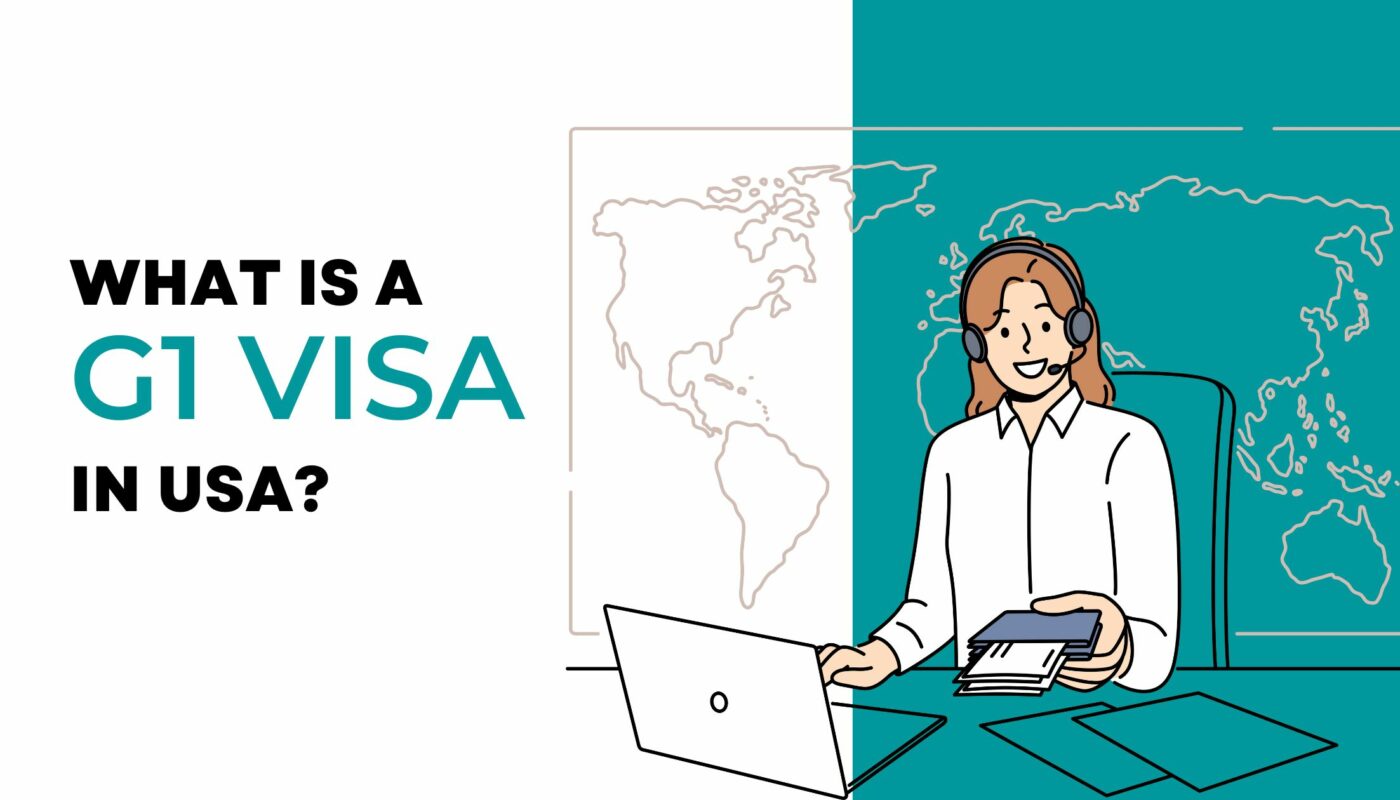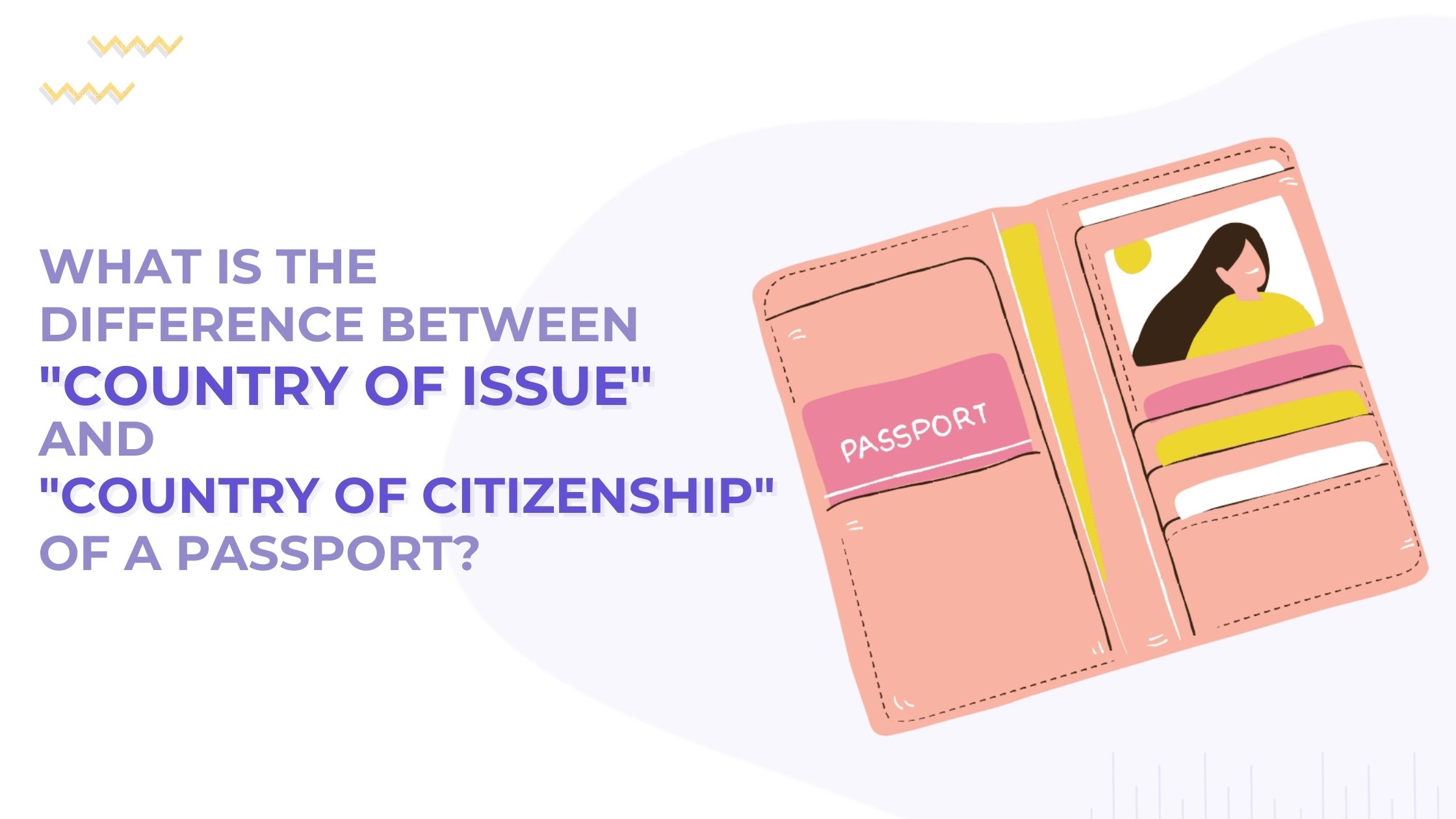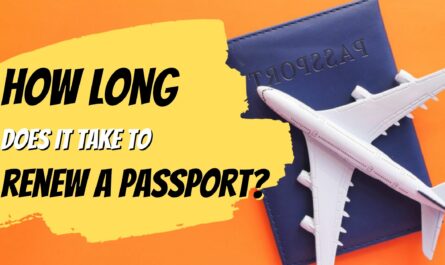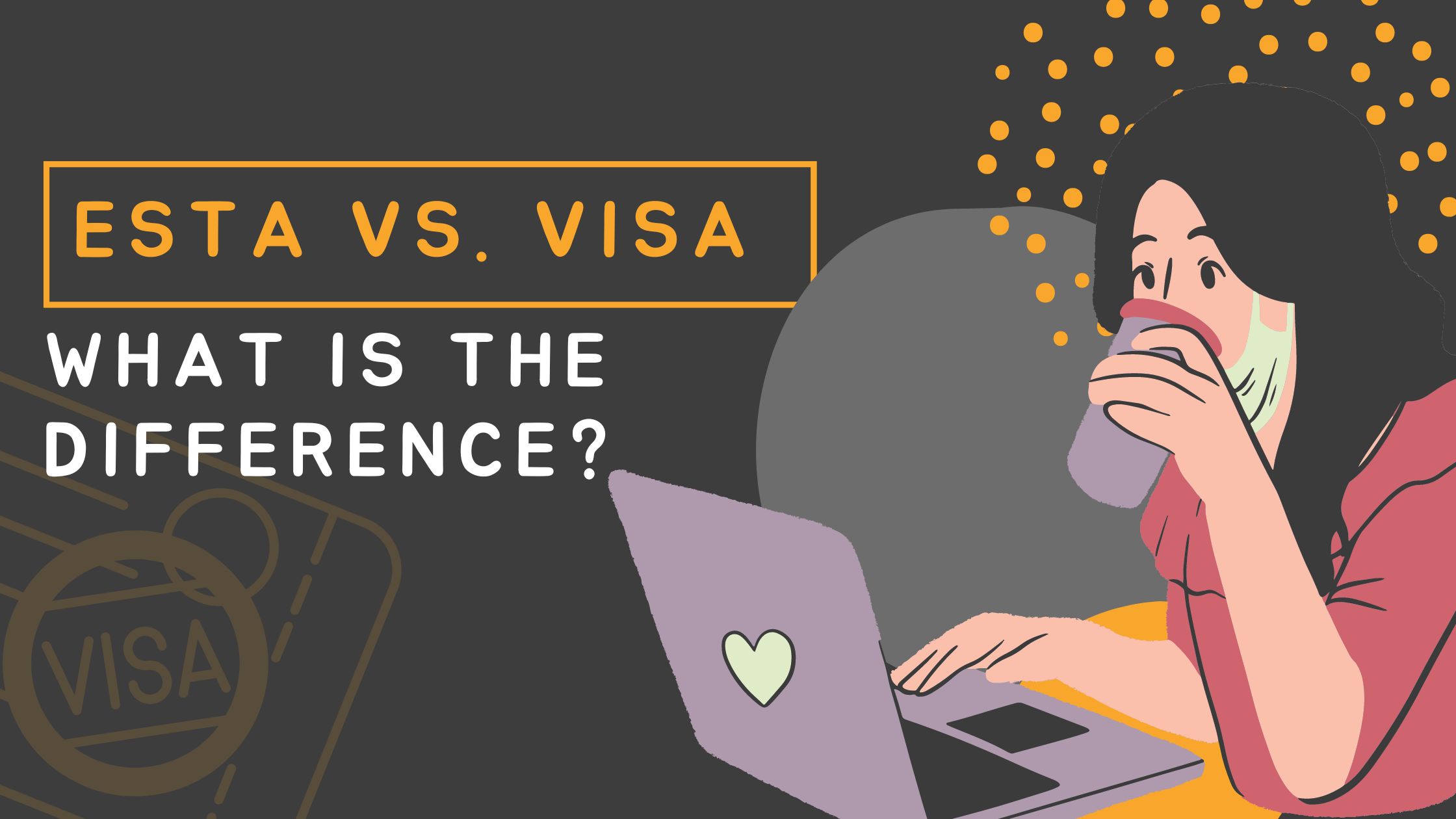Are you curious about what is a G1 visa in the USA? If you are planning to work or travel to the United States, it is essential to understand the different types of visas available. The G1 visa is a specific category that is often overlooked but can be crucial for certain individuals.
This article will provide an overview of what the G1 visa entails, who is eligible, and the benefits it offers.
What Is A G1 Visa In The USA?
G-1 visas are a type of nonimmigrant diplomatic visa issued by the United States government. These visas are granted to principal resident representatives from foreign governments and their family members who will be working in international organizations in the US.
To be eligible for a G-1 visa, applicants must have an official diplomatic appointment or be assigned to certain roles within international organizations.
According to U.S. DEPARTMENT of STATE, the purpose of the G-1 visa is to allow these representatives to perform duties related to their diplomatic post without having to obtain permanent residency status in the U.S.
Those with a G-1 visa have access to certain rights and privileges, such as access to medical care, educational opportunities, and employment opportunities.
In addition, those with a G-1 visa may also travel freely within the US and engage in other activities that support their diplomatic role.
What Are G1 Visa Requirements?
The primary requirement to get a G1 visa is that an applicant must be recognized as a representative of an international organization or government by the U.S. government. This could include ambassadors, the consulate in the U.S., members of diplomatic staff, representatives from international organizations, etc.
Those applying for a G-1 visa must provide proof of their connection to the sponsoring organization or government.
When applying for a G1 visa, there are also several documents needed. These include a valid passport with blank sheets, and the confirmation sheet of form DS-160 printed with the barcode. Moreover, a color photograph measuring 5 cm x 5 cm with a white background.
The photograph should have the applicant’s forehead visible (no hat or glasses should be worn). Additionally, a diplomatic note or letter from the international organization.
In addition, you will have to submit proof that you’re traveling for an official purpose related to their mission.
Here’s a table with situations when you may or may not need a G1 visa:
| Situation | Need G1 Visa? |
| Representing a foreign government at an embassy | Yes |
| Working for a private company in the U.S. | No |
| Conducting academic research or collaboration | No |
| Attending a business conference or seminar | No |
| Traveling for tourism or personal reasons | No |
| Serving as a diplomat or representative | Yes |
| Attending a family event or social function | No |
| Studying at a U.S. educational institution | No |
| Engaging in official diplomatic activities | Yes |
| Working for a foreign government delegation | Yes |
Can You Extend Your Stay On A G1 Visa?

Yes, it is possible to extend your stay on a G1 visa. However, the renewal process must be initiated no earlier than 60 calendar days prior to the expiration date printed on the visa. This applies to both the G1 principal visa holder and their dependents.
Note📝: Visa renewal can only be done within the United States.
There are certain exceptions to this timeline, such as in the case of a passport replacement due to theft/loss or a change in nationality, where individuals may be able to renew their visa when obtaining a new passport.
Do G1 Visa Holders Pay Taxes In The US?
No, G1 visa holders are exempt from paying income tax in the United States if they work for international organizations such as the World Bank and IMF. This exemption is due to their status as diplomatic visa holders which only applies to income earned while on G1 status. If a G1 visa holder engages in any other type of employment or earns income from sources outside of their diplomatic work, they may be subject to income tax obligations in the US.
Can G1 Visa Holders Apply For A Green Card?
Yes, G1 visa holders can apply for a Green Card under certain circumstances. If they entered the United States as a G1 nonimmigrant but failed to maintain their G1 status, they may be eligible to receive a Green Card under Section 13. This means that if they can establish that they entered as a G1 nonimmigrant but no longer meet the requirements for that status, they can apply for a Green Card.
Note📝: Eligibility for a Green Card is subject to specific criteria and requirements, and each case is evaluated individually.
What Is The G1 Visa Application Process?
Starting off, they must complete and submit the DS-160 form online. Next, they must schedule an interview at the nearest U.S. embassy or consulate to provide supporting documents. Additionally, they may have to answer questions about their purpose of travel and ties to their home country. If approved, the applicant will receive their G1 visa.
Here, is a step-by-step guide for you to make the process easier and more streamlined for easier understanding:
-
Step 1: Form DS-160
The first step in the G1 visa application process is completing Form DS-160. This form must be filled online and it will ask for personal information, including name, date of birth, address, passport number, and other details.
-
Step 2: Pay the Visa Fee
After completing Form DS-160, you must pay the visa application fee. This fee varies depending on your country of residence and is used to cover the cost of processing your visa application.
The fee can be paid online or in person at an authorized bank or financial institution.
-
Step 3: Schedule a Visa Appointment
Once the visa fee has been paid, you must schedule a visa appointment. This can be done online or by phone and must be scheduled at least three days in advance.
-
Step 4: Gather Documents
Before attending your visa interview, you must gather all the necessary documents. These include proof of financial support, medical examination results, and any other supporting documentation required for your visa type.
-
Step 5: Attend Visa Interview
You will need to attend an in-person interview at the U.S. Embassy or Consulate. During this interview, you will be asked questions about your visa application and supporting documents.
Tip 📌: Be as prepared for the interview as possible because the answers you provide will determine whether or not your visa application is approved.
-
Step 6: Visa Decision
After the visa interview, you will receive a decision on your visa application. If approved, you will be given instructions on how and when to collect your visa.
-
Step 7: Travel and Entry
Once you have collected your visa, you are ready to make your travel arrangements. You must enter the United States within the validity period of your visa.
Upon entry into the U.S., a Customs and Border Protection officer will inspect your documents and determine whether or not you can enter the country.
If approved, you will be allowed to enter the United States as a G1 visa holder.
What Is The G1 Visa Duration and Validity?
The G1 visa duration and validity are dependent on the recognition of the G1 status by the Secretary of State. As long as the G1 visa holder maintains their G1 status, they are allowed to stay in the United States indefinitely.
Unlike other visa categories, there is no requirement for the G1 visa holder to have a foreign residence to which they must return.
This means that as long as the G1 status is recognized, the individual can continue to stay in the U.S. without any specific time limit or validity period.
What Are The G1 Visa Work Restrictions?
The G-1 visa permits the holder to engage solely in duties connected to the international organization and agreements designated by the President through the International Organizations Immunities Act. This confines their work to official tasks aligned with the organization’s activities.
Furthermore, the G-1 visa explicitly prohibits unauthorized employment, meaning work outside designated responsibilities necessitates prior USCIS approval. The G-1 visa does not allow for self-employment either.
Additionally, it does not provide a path to permanent U.S. residency.
However, dependents of G-1 visa holders may seek work permission under reciprocal arrangements. It’s crucial to avoid unauthorized work, as it violates visa terms.
Lastly, G-1 visa holders are exempt from Social Security and Medicare taxes.
What Are The G1 Visa Benefits?

The G1 visa benefits include the ability to enter and work in the United States as a representative of a foreign government. It also allows for travel in and out of the country, as well as the opportunity to bring dependents and receive healthcare benefits.
Let’s check out the benefits in detail below:
Official Representation
A G1 visa grants the holder official representation in the United States on behalf of their government. This includes privileges like diplomatic immunity and access to diplomatic services.
Legal Entry and Stay
The G1 visa also allows its holder to legally enter and stay in the US for a period of up to three years. You can extend your stay beyond this period, provided you obtain approval from the US Department of State.
Access to Diplomatic and International Events
The G1 visa also grants the holder access to diplomatic and international events taking place in the United States. This includes attending conferences, meetings, seminars, and other diplomatic functions.
Dependents’ Accompaniment
Furthermore, a G1 visa allows dependents (spouses and children) of the visa holder to accompany them in the US. This could prove to be very useful if the visa holder is relocating to the US for work or study.
No Labor Certification Process
Lastly, G1 visa holders do not have to go through a labor certification process when applying for their visa. This means that they can easily obtain a G1 visa and start working quickly.
G1 Visa vs. G4 Visa – What Is The Difference?
The G1 visa is issued to individuals who are representatives of a foreign government or international organization, while the G4 visa is issued to employees of international organizations and their immediate family members. Both visas allow for temporary residence in the United States.
However, the G1 visa is more specific to government officials.
A G1 visa is issued to members of a permanent mission from a recognized government to an international organization.
This type of visa allows the holder to remain in the United States for as long as they are employed by the mission and serves as evidence that the holder is an official representative of their country.
On the other hand, a G4 visa is issued to individual personnel who travel to the United States for an assigned appointment from an International Organization, including the United Nations. This type of visa allows for up to one year of residence in the U.S. and can be extended if needed. Unlike the G1 and G3 visas, which are intended for official representatives of their countries, a G4 visa is more geared towards those who are employed by the international organization. Here’s a table outlining the situations when you can and can not use a G1 visa and a G4 visa:
| Situation | Use G1 Visa? | Use G4 Visa? |
| Representing a foreign government | Yes | Yes |
| Engaging in diplomatic activities | Yes | Yes |
| Immediate family member of a G1 or G4 visa holder | Yes | Yes |
| Employed by an international organization | No | Yes |
| Working for a non-governmental organization | No | No |
| Traveling for tourism or personal reasons | No | No |
Conclusion
In conclusion, the G1 visa in the United States is a specialized nonimmigrant visa category primarily intended for foreign government representatives and their immediate family members. Understanding the eligibility criteria and privileges associated with the G1 visa is essential for those who qualify and wish to partake in diplomatic missions or other official tasks within the United States, fostering international diplomacy and collaboration.







